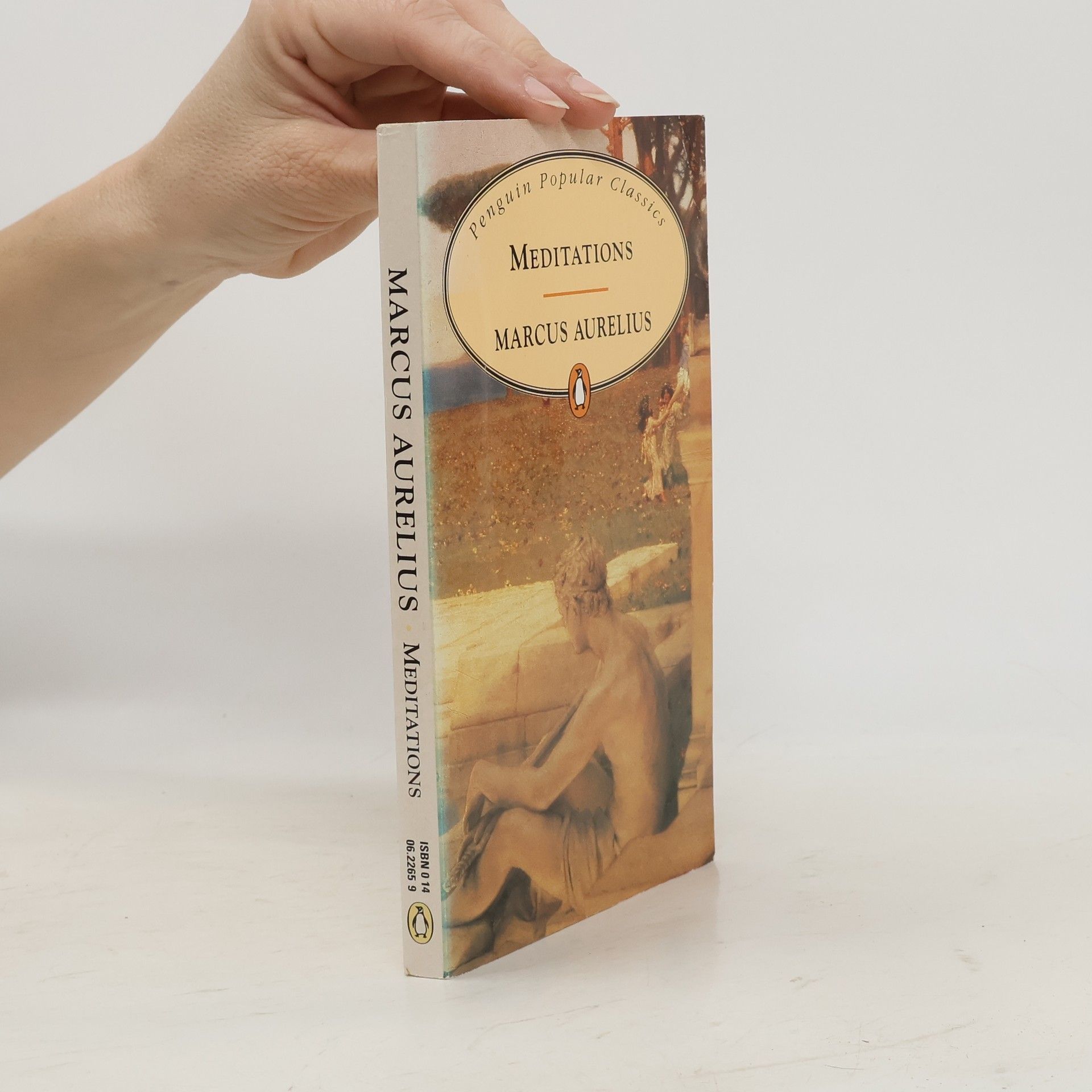A classic adventure novel detailing the savagery of life in the northern wilds. Its central character is a ferocious and magnificent creature, half dog, half wolf, through whose experiences we feel the harsh rhythms and patterns of wilderness life among animals and men.
Robin Waterfield Books
This author specializes in ancient Greek philosophy, offering readers deep insights into the minds of classical thinkers. Their work is characterized by precise translation and a keen analytical approach. Through their literary output, they bring classical philosophy to life, making its timeless ideas accessible to a modern audience. Readers will appreciate their ability to connect historical context with contemporary relevance.






The Wisdom of Marcus Aurelius
- 256 pages
- 9 hours of reading
This abridged edition of Marcus Aurelius's Meditations offers a refined selection of his timeless philosophical insights, translated by a renowned expert. Readers can expect to engage with the profound reflections of the Roman Emperor on virtue, resilience, and the nature of the human experience. The edition captures the essence of Aurelius's thoughts, making them accessible for contemporary audiences while preserving the depth and wisdom of the original text.
Who Was Alexander the Great?
- 106 pages
- 4 hours of reading
This easy to read biography offers a fascinating look at the life of Alexander and the world he lived in. A series of illustrated biographies for young readers featuring significant historical figures, including artists, scientists, and world leaders.
The Body
- 80 pages
- 3 hours of reading
In 1960s America, four young boys go on a journey to search for the body of a boy killed by a train. As they travel, they discover how cruel the world can be, but also how wondrous.
Simply Stories - 4: The Body
- 80 pages
- 3 hours of reading
Set in the fictional town of Castle Rock, Maine #1 New York Times bestselling author Stephen King’s timeless novella “The Body”—originally published in his 1982 short story collection Different Seasons, and adapted into the 1986 film classic Stand by Me —is now available as a stand-alone publication. It’s 1960 in the fictional town of Castle Rock, Maine. Ray Brower, a boy from a nearby town, has disappeared, and twelve-year-old Gordie Lachance and his three friends set out on a quest to find his body along the railroad tracks. During the course of their journey, Gordie, Chris Chambers, Teddy Duchamp, and Vern Tessio come to terms with death and the harsh truths of growing up in a small factory town that doesn’t offer much in the way of a future. A timeless exploration of the loneliness and isolation of young adulthood, Stephen King’s The Body is an iconic, unforgettable, coming-of-age story.
Meditations
- 160 pages
- 6 hours of reading
The Meditations of Roman Emperor Marcus Aurelius are a readable exposition of the system of metaphysics known as stoicism. Stoics maintained that by putting aside great passions, unjust thoughts and indulgence, man could acquire virtue and live at one with nature.
Annie Wilkes is Paul Sheldon's number one fan and loves all his books about Misery Chastain. When she finds Paul injured after a car crash, Annie takes him home to nurse him back to health, but soon learns that Paul plans to kill off Misery, something Annie can't allow him to do.
Engaging but rigorously researched narrative history. All you ever needed to know about the Greeks. The Lady
This book, the first ever biography of the father of philosophy, tracks Plato's life from his childhood in war-torn Athens at the end of the fifth century BCE to his founding of the Academy, adventures in Sicily, death, and immense legacy. Throughout, it sheds light on Plato's many timeless works of philosophy.
The firm
- 421 pages
- 15 hours of reading
Mitch qualified at Harvard, third in his class, and is sought by law firms all over America. The one that gets him is small, but well-respected, and pays him beyond his wildest dreams. But then the nightmares begin - secret files, bugs in the bedroom, colleagues' mysterious deaths and mob money.

